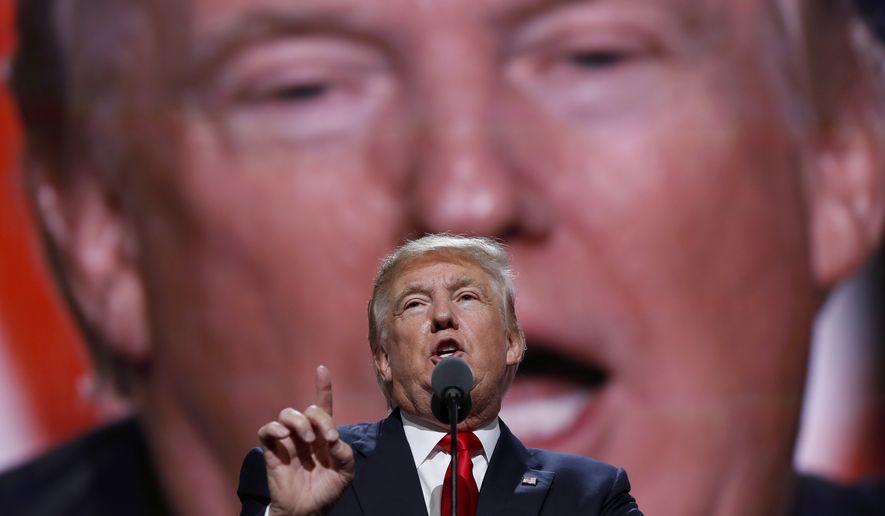OPINION:
The front page above the fold headline in The Washington Post last week blared “Efforts to thwart Biden’s victory start taking shape.”
The New York Times headline opined “Cracks Show in Trump’s Red Wall As More Republicans Accept Biden Win.”
CNN posted a list of Republican senators who have yet to concede the election to Joe Biden.
The same anti-Trump news outlets that have worked to undermine President Trump in every conceivable way for the last five years are demanding Mr. Trump and his supporters surrender.
When my enemies tell me to do something, I tend to go the other way.
This election is not over, not by a long shot. In fact, it is probably just beginning.
To show you just how early we are in the election litigations, the case of Bush v. Gore involved recounts. Today, some states are still finishing their initial count. The Bush v. Gore recount fight lasted 36 days, had lots of evidentiary hearings, went to the Florida Supreme Court multiple times, and to the U.S. Supreme Court twice before it was over.
It is way premature to claim the 2020 election is over. Legally, it is not over since the earliest it could be over would be when Mr. Trump concedes (not happening) or when Mr. Trump loses on Dec. 14, when the Electoral College votes (four weeks from now).
We are told Mr. Trump has already lost, but that’s not so obvious once the pending lawsuits, and their potential implications, are taken into account.
Mr. Trump has multiple paths to victory depending on how the various lawsuits play out. It is too early in the process to even know which litigation will prove strongest as the cases are nascent.
The goal of those working against Mr. Trump is to put enough pressure on enough weak Republicans to stop the process — what they want to prevent is the discovery process, which would allow Mr. Trump and his team to uncover evidence of voter fraud, irregularities and the like.
Evidentiary proof takes time to develop. Plaintiffs are not required to prove their entire case on the day they sue. Think of building a legal case like building a brick wall. You start with one brick (a fact) and then add another brick (another fact) and then another brick (another fact), and before you know it you, you have a wall.
Not one single brick will prove fraud or a constitutional violation, but when you bring them all together and view them as a whole a pattern will be shown.
Potentially, Mr. Trump’s lawyers could depose the staff of these polling places and ask them — “How were you trained to handle the ballots? With no names? With no witnesses? With no postmark? Do you have any videos of your training? Did you speak with the Democratic Party about a policy of keeping Republicans out?”
Documents and emails exchanged by state election officials might also be highly informative.
Supporters of the president must not be bullied into premature concessions and leave these questions unanswered and evidence undiscovered.
As a New York real estate developer, Mr. Trump is more familiar with navigating complex legal processes than any president in our history. Mr. Trump spent his entire career dealing with unions, banks, and developers, as well as countless lawsuits and legal proceedings.
Mr. Trump’s legal team likely understands that voter fraud does not have to be widespread to work.
“Widespread voter fraud” is a canard. Voter fraud can be targeted and focused in a particular area, such as Philadelphia, to tip Pennsylvania.
Democrats will say Mr. Trump has no direct evidence. But that is not legally required. Circumstantial evidence can be sufficient. Mr. Trump seems to be building up strong circumstantial evidence of voting irregularities that occurred in the key swing states, and could also argue that he was denied the chance to procure more direct evidence because his Republican poll watchers were prevented from discovering more.
If it turns out that the number of illegal votes exceeds the margin of victory for either candidate, then the U.S. Supreme Court — or another court — could enter an order barring a state from awarding the electors to either candidate via the popular vote in that state.
President Trump and his supporters have a long way to go. They should not give into pressure tactics deployed by the usual anti-Trump suspects.
To quote Joe Biden, “keep the faith.”
• Mark W. Smith, a constitutional lawyer and a Presidential Scholar, is a senior fellow in law and public policy at the King’s College in New York City.




Please read our comment policy before commenting.